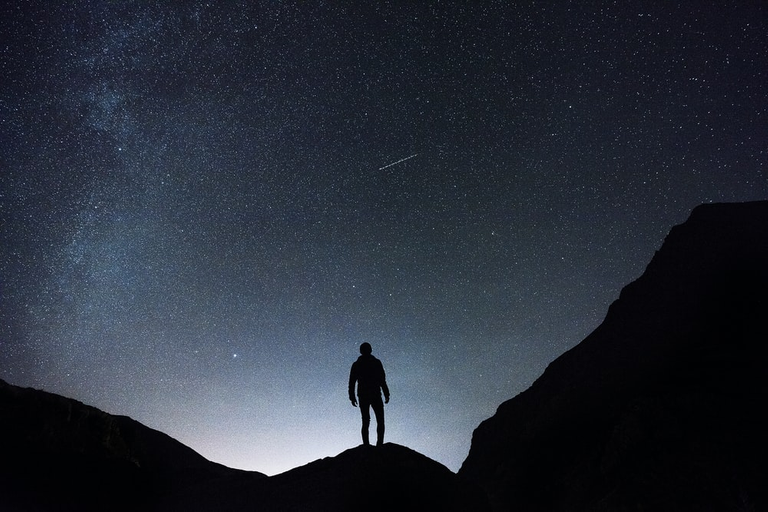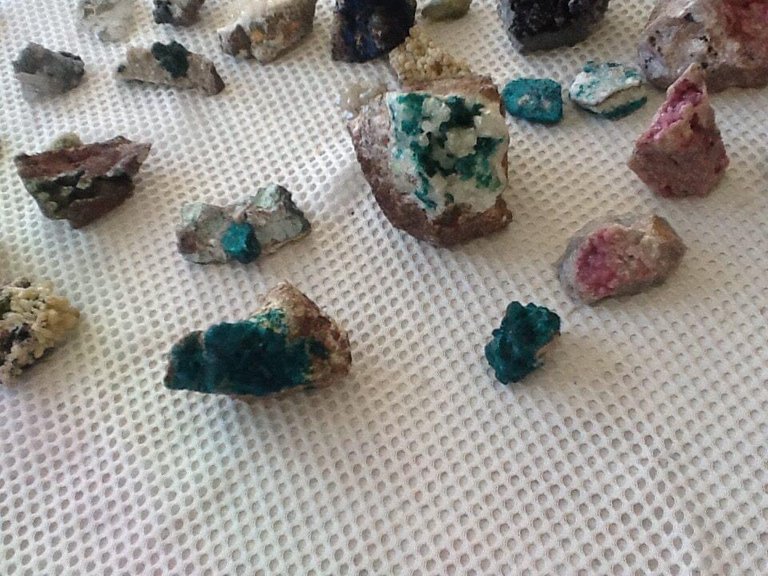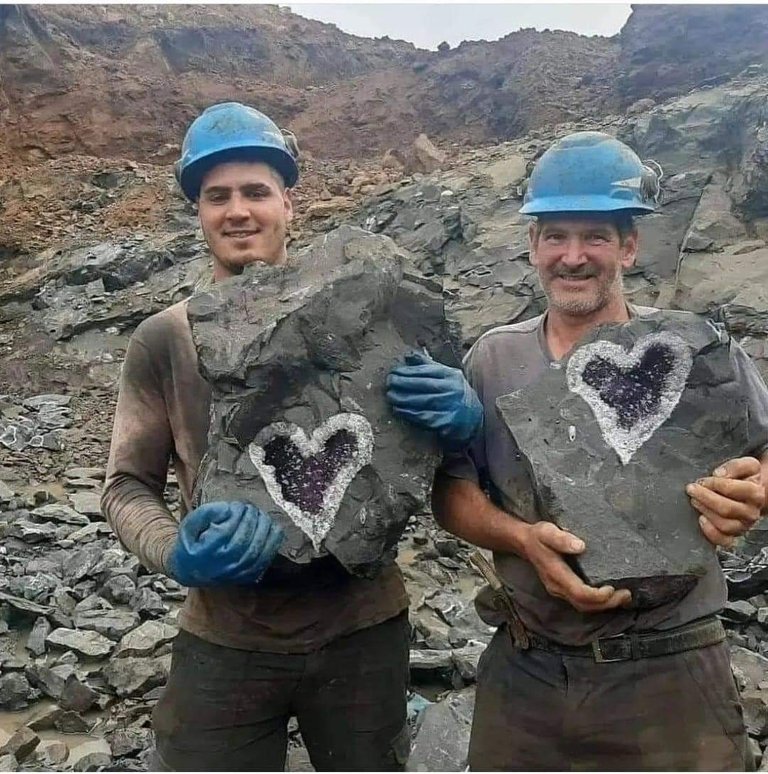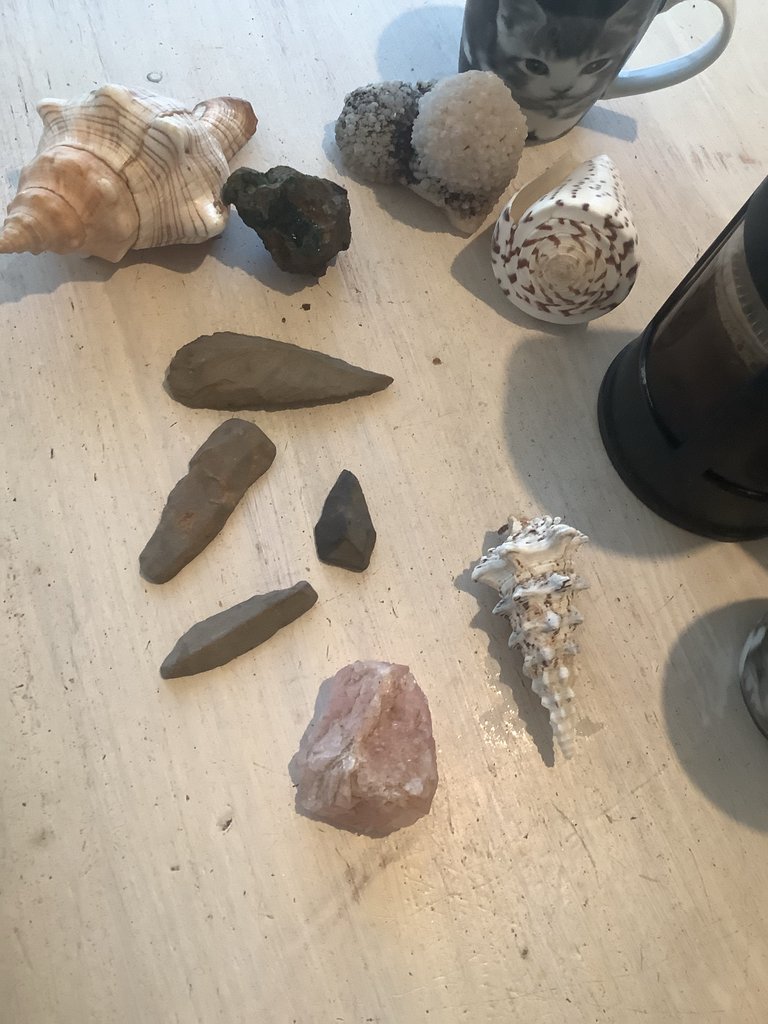On the morning of his leaving, he gives her a piece of flint shot through with flecks of quartz. 'They're stars', he said. 'I love you more than this universe', he smiled, and pressed it into the palm of her hand. She reddens, although he doesn't at all mean to embarrass her. It is the best and most logical comparision he knows, since his face is always turns skyward. Still, it is a rare moment of fancy for him, but he is so unaware of social constraints that he does it without a trace of embarrassment or even awareness that the moment could be overdone. There is no sheepish smile nor touch of irony. For the longest time she turns the stone over in her pocket, feeling it's cold surface turn warm under her touch, and think of this guileless, pure moment that no one will offer so unabashedly, so unreservedly, for the rest of her days.

The moment will be like cut diamond lines of verse, in her memory, a realm in which he is not unstudied, given that even scientists must learn some poetry. He even acknowledges that there may be a useful intersection between them. Things in the centre of the Venn diagram of poetry and science includes awe, curiosity, observation, patience, and interest in small details. Words are problematic puzzles as is the entire word - they must be inspected one by one before being put together, like data. And a poem, he would say, can capture a particular understanding of an experience far more than science might try to. Take the plums in the icebox, he said to her once. It was hot and he was tracing icecubes on her lips. Williams had written:
I have eaten
the plums
that were in
the icebox
and which
you were probably
saving
for breakfast
Forgive me
they were delicious
so sweet
and so cold
'Science might have described why his plums were cold' he winked, clearly enjoying the double entendre, 'but not the reasons for his selfishness in eating them himself.' She had laughed, causing him to drop the iceblock on her chest, sending her squealing through the sheets.
In three years time, he will pick up a stone on another planet, look at the stars from this new and peculiar angle, and think she has forgotten him. He will remember her hair, her lips, but not the whole. It will be no surprise - he had spent his whole life making a series of decisions that will take him through many galaxies, but never towards her, and always towards the pursuit of science and discovery. Most other things would be forgotton, or tarnished with time, like an old mirror with it's silver backing worn.
He was moving forward as the first generation of many that would be born in space and never know Earth, pushing forward to the exoplanets that might support life. He had neglected to tell her so, not thinking that she would think for many moons that he would return to her. It was not something he meant, although he worried at the fact he was not more clear. Who knew that life could be moments of regrets, strung together like stars? In the moments where he was awake, fulfilling his role as skeloton crew while the others slept their cryosleeps, he would imagine her puzzling this life out in poetry, never knowing what it cost to venture into these liminal, dark spaces of human endeavour.
The last transmission he will receive will say:
I have thrown
the stone
that was in
my pocket
and which
you have probably
forgotten
long ago
Forgive me
it was so
so hard
and so cold
He will wrap it around his own found stone and secure it with a rubber band, and hurl it through the whirling dust which will obscure his already distant home planet from him forever. He will do it without a trace of embarrassment for such a grandiose and ridiculous gesture, so illogical and unscientific. He will do it to attempt a final goodbye to the feelings that will threaten to tug him earthward until it is impossible to feel anything.
He will vow to the Great Infinite that there could be no room for poetry any longer, and weep in the starlight, his face turned from his fellow travellers in shame.
This was written for a prompt, the word 'stars', but was adapted to fit the Inkwell prompt 'Embarrass', which helped me revise it to develop the character's emotions a little better than the original version written a few weeks back and which was lingering in my drafts! Hope you enjoyed it. Image from Unsplash. The poem I reference is by William Carlos Williams, called 'This is To Say' and is one of my favourite poems in the entire universe.


